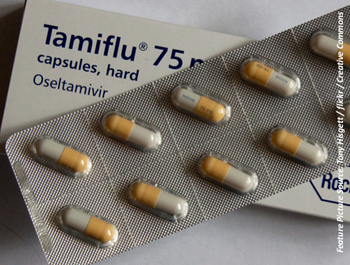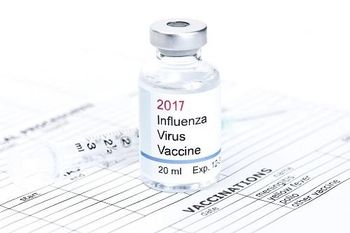
A recent study has found that a single-dose of Merck's Ebola vaccine delivers antibodies that can last for 1 to 2 years.

A recent study has found that a single-dose of Merck's Ebola vaccine delivers antibodies that can last for 1 to 2 years.

Tuberculosis treatment is long and rigorous, but a new study by Johns Hopkins School of Medicine suggests that a smartphone application may help patients adhere to their daily medication regimens.

An outbreak of infections caused by the drug-resistant fungus, Candida auris, in one United Kingdom hospital has been linked to multi-use patient equipment.

A recent study sheds light on how long Zika virus can be transmitted through semen following infection, while another study assessed the side effects of Zika infection on infants with post-natal exposure.

Following outbreaks of measles and yellow fever in parts of Central America, South America, and the Caribbean, PAHO is leading the 16th annual Vaccination Week in the Americas in an effort to vaccinate 70 million individuals against several diseases.

By studying norovirus infections in mice, researchers have discovered how the virus targets rare intestinal cells to cause intense illness.

In a recent webinar, epidemiologists from the Centers for Disease Control and Prevention presented data on Rocky Mountain Spotted Fever ahead of the summer tick season.

New strains of the mumps virus are not to blame for the recent resurgence of cases, say researchers in a new study, instead pinning the recent outbreaks on declining protective effects of the mumps vaccine over time.

Organ donor recipients taking anti-rejection medications are at risk for infection, but a new study has found that the rate of death from such infections has declined significantly.

Representatives from Novavax, Inc., an American-based biotechnology company, presented data at the recent World Vaccine Congress in Washington, DC, on their vaccines under development for the flu and RSV.

In a new international study, a team of European authors says that antibiotic use for preventative purposes is too high in pediatric hospitals, prompting a call for better antibiotic stewardship efforts.

While a new study has found that the HPV vaccination rate has more than tripled among young men in the United States, rates for both males and females are still well below public health targets.

With influenza B making a late-season rise, health officials are warning that B viruses may cause a second wave of flu this season, while the FDA is backing some alternatives to egg-based flu vaccines.

As an outbreak of Lassa fever in Nigeria continues to spread, the Coalition for Epidemic Preparedness Innovations is working with Themis Bioscience to develop a vaccine to protect against the virus.

The National Center for Health Statistics has released new data on flu vaccination rates in the United States, as 1 new study shows which airline passengers may be at greatest risk of catching the flu inflight.

The Global Virome Project is set to launch in 2018, and will spend the next 10 years working to identify as many as 827,000 unknown viruses in the wild.

As flu activity continues to decline in the United States, some states are still reporting a record number of flu illnesses, as a new study debunks concerns that the use of Tamiflu may lead to increased suicide risk in teens.

In the wake of Europe’s recent 4-fold increase in measles cases, countries such as Italy, Germany, and Romania are passing tougher laws requiring vaccinations for children being enrolled in school.

The World Health Organization reports that declining vaccination rates caused a 4-fold increase in measles cases in Europe last year, which prompted European health ministers to convene a meeting to discuss efforts to eliminate the virus.

An outbreak of Lassa fever in Nigeria that began at the start of the year has now soared to become the country’s biggest outbreak of the virus to date. Nigerian and global health officials are now working together to stop the outbreak.

CARB-X, the international partnership between governmental and charitable groups in the United States and the United Kingdom, has announced new funding for the development of new antibiotics to fight drug-resistant bacteria.

A new bill introduced by a group of senators aims to boost universal flu vaccine research by $1 billion over the next 5 years, as health officials continue to investigate the cause of the flu shot’s low efficacy.

While a new report has found that the flu vaccine has been just 36% effective this year, a recent study suggests that history of exposure to flu may, in part, be to blame.

A new study announced by the National Institute of Allergy and Infectious Diseases may help cut the number of antibiotics unnecessarily prescribed for viral lower respiratory tract infections.

A panel of experts from the Philippines Department of Health finds that Sanofi Pasteur's dengue fever vaccine, Dengvaxia (CYD-TDV), may be connected with 3 deaths.

Influenza A (H3N2) has caused most of the illnesses in this severe flu season, but influenza B is becoming increasingly responsible for more infections as the flu season continues to hit the United States.

A Nebraska mother’s Facebook post has parents and health experts around the country wondering if an influenza B infection may have caused hives in a child who did not present with any other flu symptoms.

Following an outbreak of norovirus in Pyeongchang ahead of the Winter Olympics, health officials are taking steps to stem the outbreak and keep attendees healthy.

Despite a new report indicating that the flu vaccine hasn’t been very effective in North America this year, health officials say it’s still a valuable weapon against this severe flu season.

Superbugs resistant to colistin – a last-resort antibiotic – may have a new foe in octapeptins, antibiotics discovered decades ago that recently have been found to be effective against multidrug-resistant gram-negative bacteria.